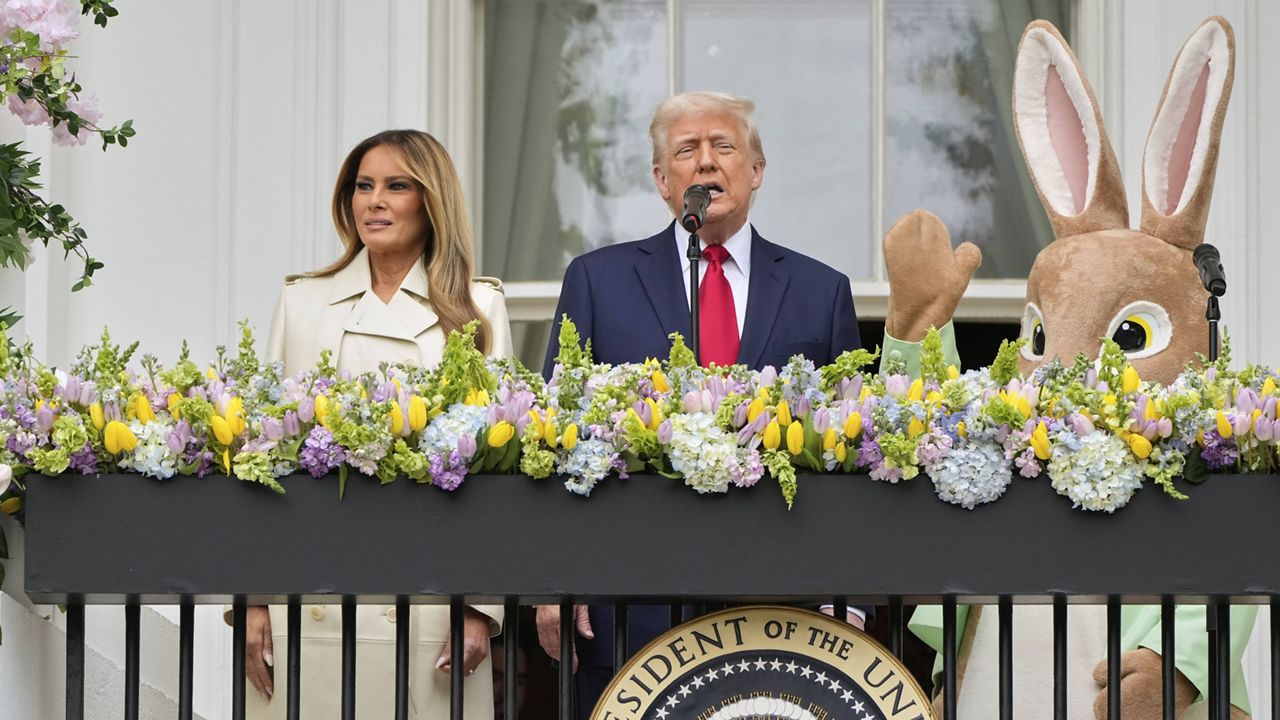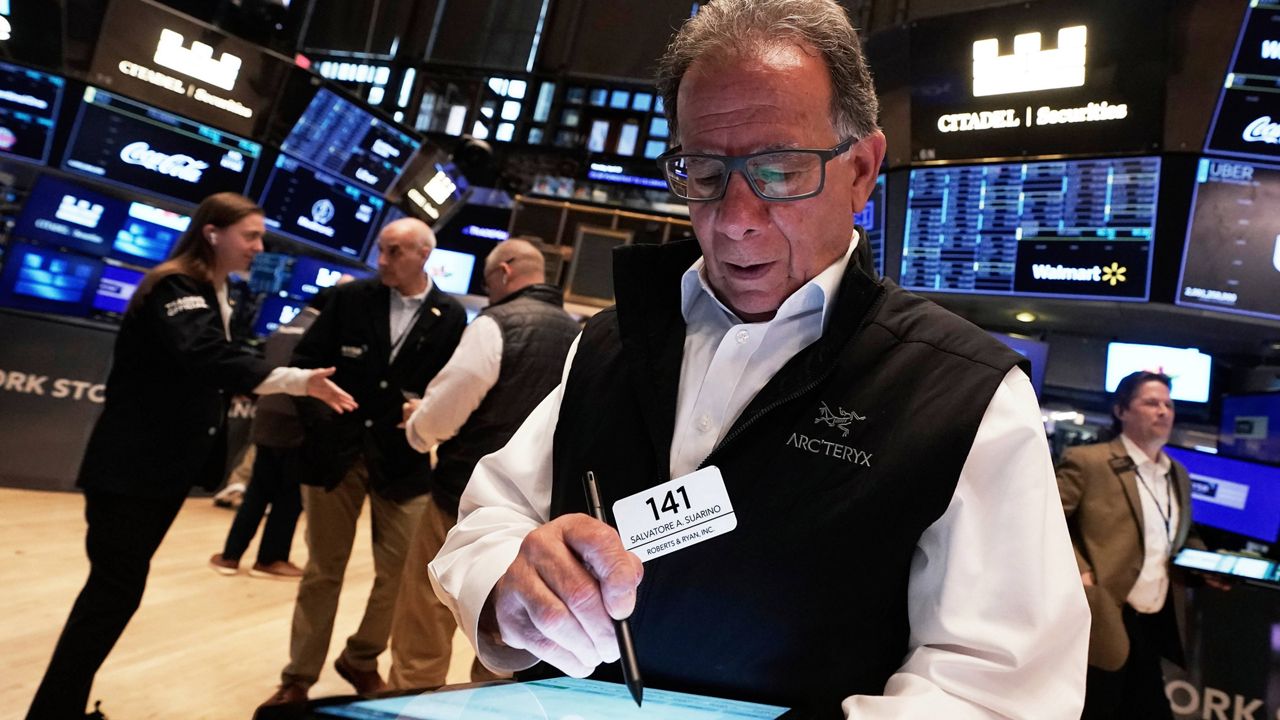WASHINGTON — One day before a steep new round of reciprocal tariffs is expected to kick in on some U.S. trading partners, House Democrats slammed the import taxes and said they are looking at legislative tools to combat them.
“We’re watching a global recession take hold because of the boneheaded policies of one person,” House Democratic Caucus Chair Pete Aguilar, D-Calif., said Tuesday, referencing a steep decline in global stock markets following the president’s reciprocal tariff announcement last week.
“Donald Trump has imposed the largest tax increase in 50 years on every single American,” he said. “Republican incompetence is crashing the economy with reckless tariffs and bleeding the retirement accounts of Americans dry.”
Aguilar said the caucus would like to work in a bipartisan way, similar to Sen. Chuck Grassley, R-Iowa, and Sen. Maria Cantwell, D-Wash. Last week the senators introduced a bipartisan bill called the Trade Review Act of 2025 that would require the president to inform Congress of any new tariffs within 48 hours of them being imposed and allow tariffs for a maximum of 60 days unless Congress approves an extension.
The Trump administration is reportedly vowing that the president would veto the bipartisan bill if it reaches his desk, and any other legislation that would curtail his tariff authority would likely face a similar fate.
Aguilar said Rep. Gregory Meeks, D-N.Y., a senior member of the House Financial Services Committee, is spearheading an effort to end the emergency Trump invoked last month, through the International Emergency Economic Powers Act of 1977, to impose tariffs on Canada, China and Mexico due to an “extraordinary threat” from illegal immigration and fentanyl.
Rep. Adam Gray, D-Calif., who represents one of California’s major agricultural regions, said he is working on legislation to specifically address the effects of Trump’s tariffs on farmers.
“The last time blanket tariffs went into effect under President Trump’s first administration, California farmers lost an estimated $683 million in crop revenue,” Gray said.
California is the top state for agricultural production, followed by Iowa, Texas, Nebraska and Illinois, according to the U.S. Department of Agriculture. Tree nuts and dairy products are among the state’s biggest exports to its top three trading partners of China, Canada and Mexico.
More than 20% of U.S. agricultural production is exported, according to the American Farm Bureau Federation. In 2024, $176 billion in agricultural products were exported to 189 countries and territories. Almost half of U.S. agriculture is traded to Mexico, Canada and China.
Gray said California lawmakers in the House recently received a letter from agriculture industry leaders in the state asking Congress to support commonsense measures to protect fair competition for their products and defend the nation’s food supply.
Representing more than 400 commodities from California that generate billions of dollars in revenue, Gray said, “They warn of uncertain market conditions, disrupted business operations and increased costs associated with retaliatory tariffs.”
Last week, China said it would impose a 34% retaliatory tariff on U.S. imports following Trump's announcement of a 34% reciprocal tariff on the country. Trump said Monday he would impose a 50% additional tariff on China because of its retaliation, raising the total tariffs on Chinese imports to the U.S. to 104% once they take full effect.
Gray said Trump opted against working with Congress to make precise strategic changes to trade policy in favor of imposing “sloppy blanket tariffs that stuck American farmers with the bill. I’m ready to work with anyone and everyone who is serious about rising above partisan politics to protect our agricultural communities from the impact of tariffs. We must do something now.”











